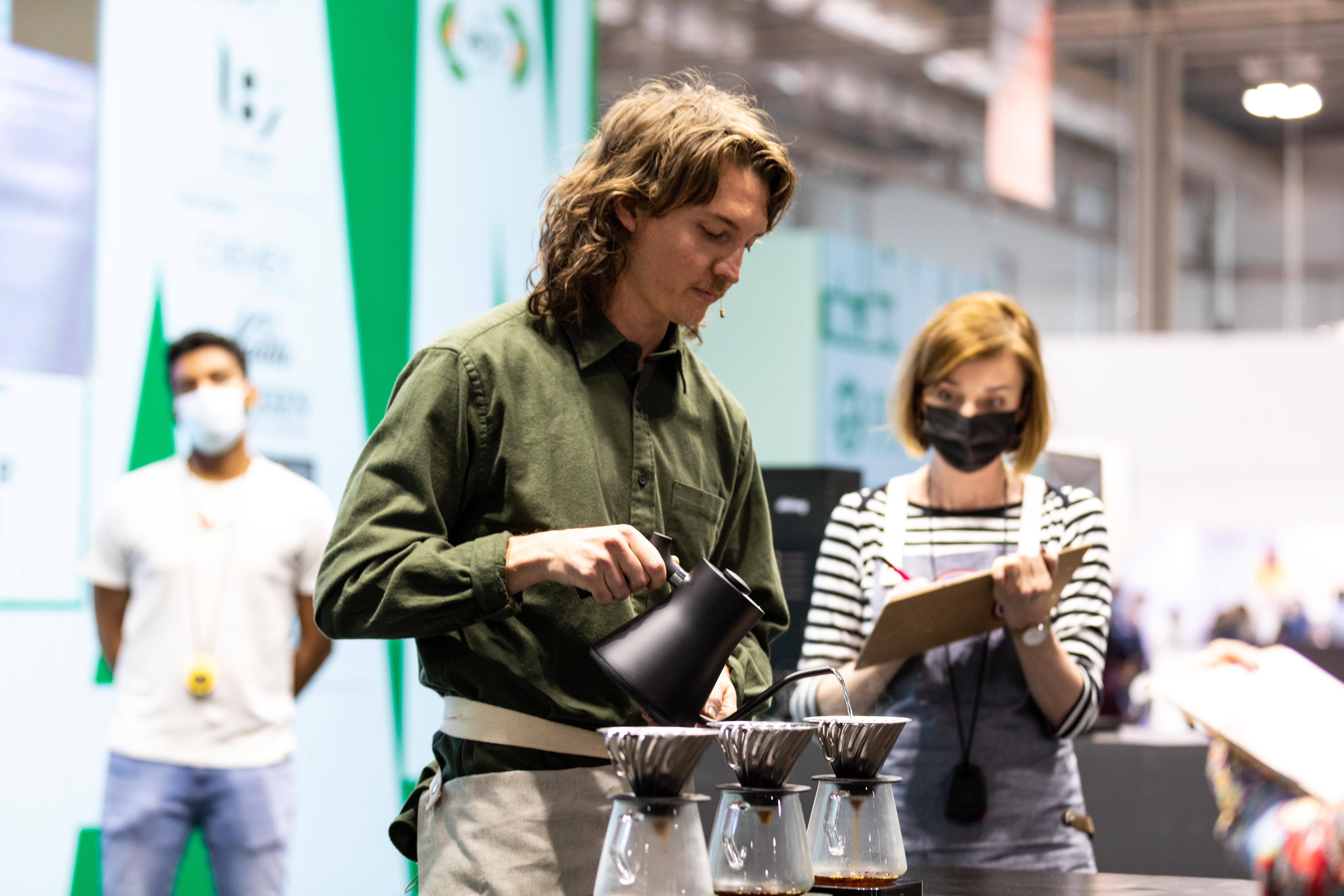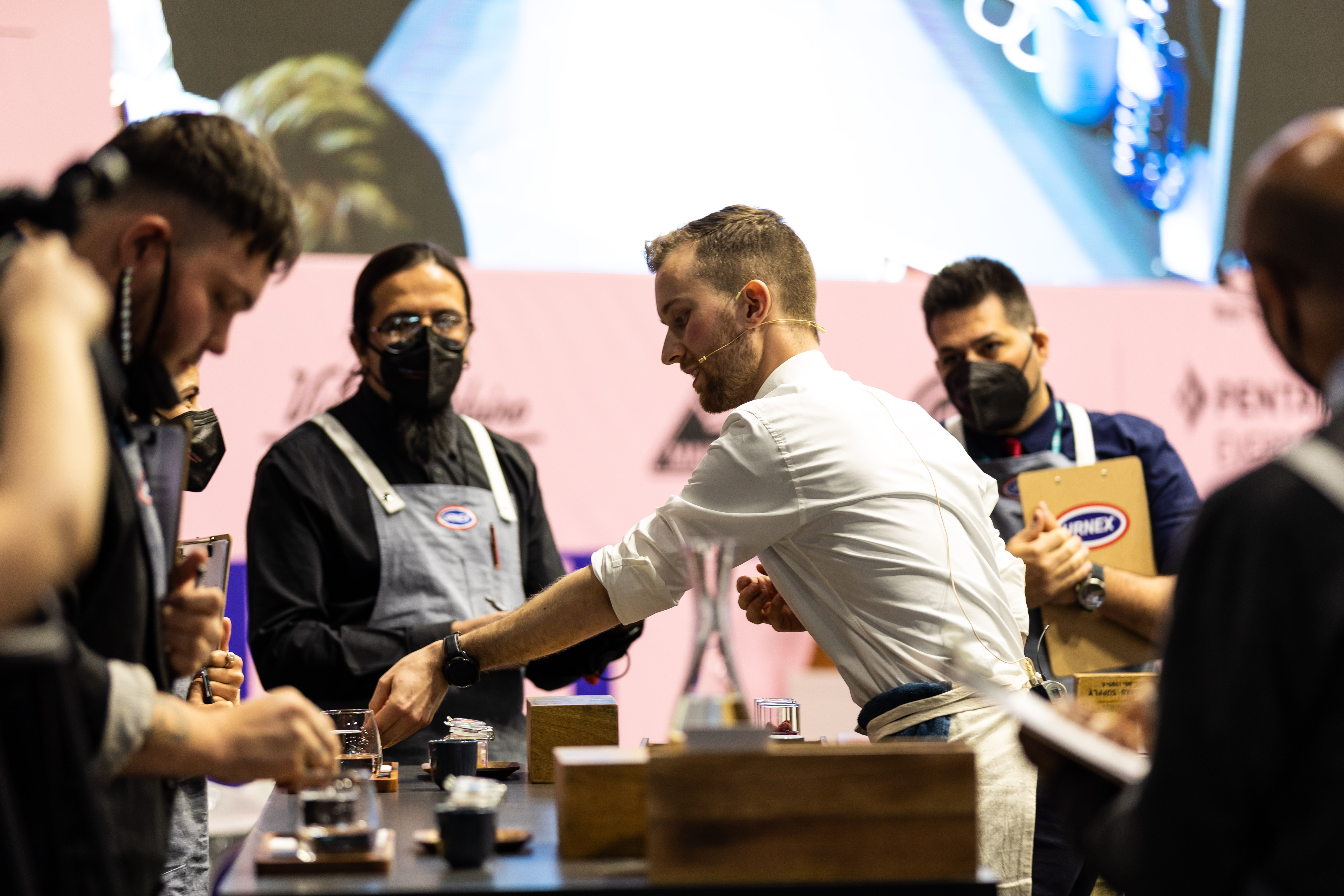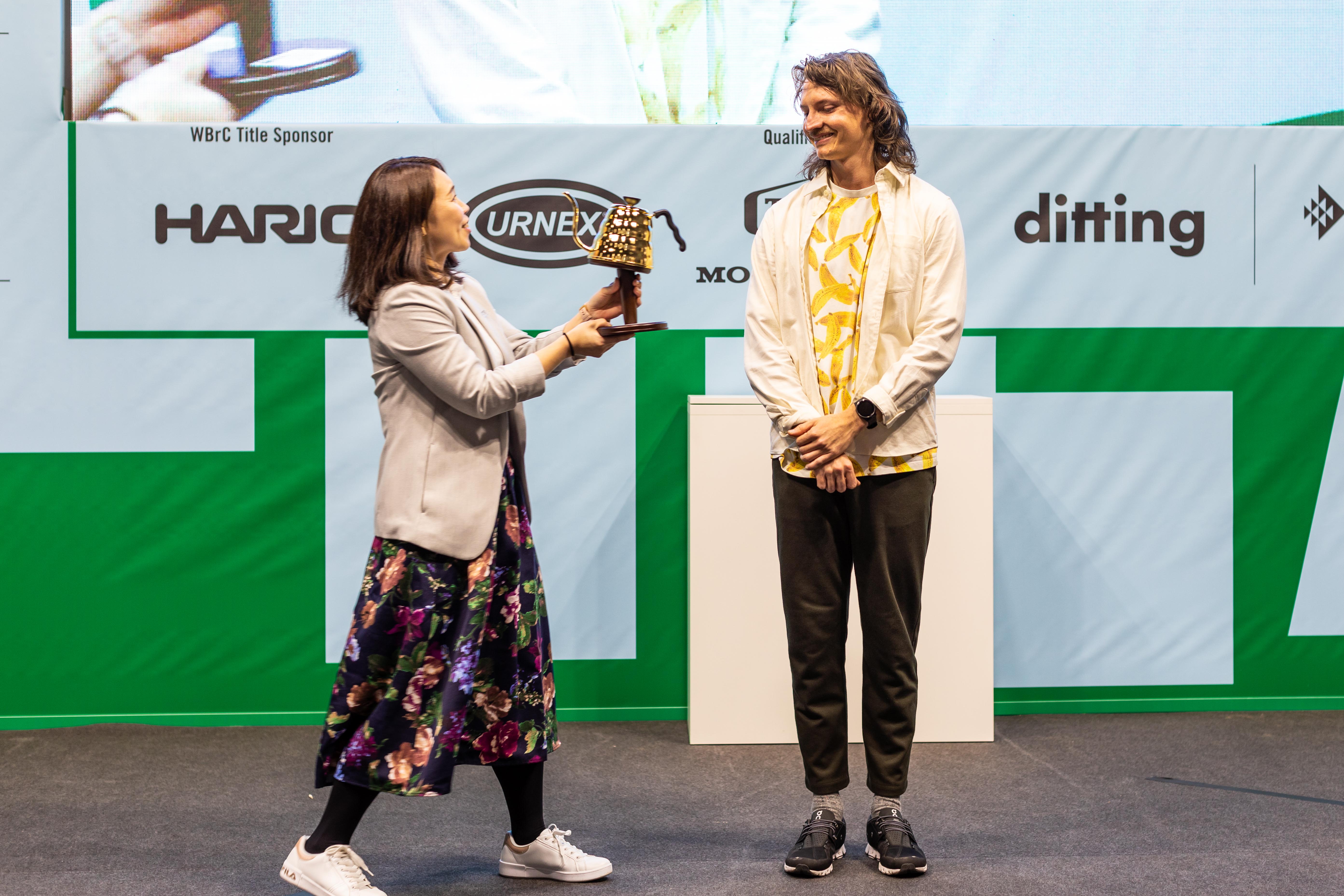

by Sierra Yeo
With the world slowly easing its way back into a new, if cautious, normality, we’re seeing a resurgence of coffee events, both national and international. The last nineteen months have been a blow for the global coffee industry, as the coffee supply chain from farm to cafe shuddered to a halt and we wondered if drinking coffee would ever be quite the same again. As economies the world over begin to recuperate, trade events naturally became part of that selfsame recovery for the global coffee industry - with the flow of goods and services once again accompanied by the exchange of people, ideas and innovation that had for so long been missed.
At the heart of global coffee events lies competitions - an exciting meeting of the minds that drives the frontiers of what is possible in our industry, year on year. With the last World Coffee Championship events having been held in Boston, U.S.A. in 2019, competitors who had been expecting to compete in championship events at World Of of Coffee (WOC) in Warsaw, Poland and at the Melbourne International Coffee Expo (MICE) in 2020 were shocked when both events were cancelled as a result of COVID-19. Such circumstances were unprecedented, with many competitors unsure of when they would next be able to compete, amongst other pressing worries such as job stability, general health and wellbeing, and a milieu of other pandemic-related stressors.
Thankfully, more than a year on from the initial onset of COVID-19, competitors were relieved to receive a definitive answer as to when they were permitted to compete again: at HOST Milano 2021, home this year to the World Barista Championships (WBC), World Brewers Cup (WBrC), and World Cup Tasters Championships (WCTC). With more than a year’s deferral for some of the best baristas the world has to offer, it’s not inconceivable that the ensuing uncertainty in that time may have impacted their preparation, routines and approaches to competing on an international stage once again. We speak to Matt Winton, 2018 and 2019 Swedish Barista Champion and Swiss Brewers Cup Champion 2020, and Adrian Berg, 2019 and 2020 Norwegian Barista Champion, about the lead-up to this year’s Worlds events and how the past year may have altered their approach to competing in present times.
Shifting Gears - COVID-19’s Impact on Competitor Preparation
Given that the COVID-19 pandemic was quite possibly epoch-defining, it seems almost superfluous to ask if anything has changed for either Matt or Adrian, in circumstance, attitude or preparation, since both competitors were last slated to compete. “I mean - apart from the location changing 3 times at the last minute - it's been just preparation as usual,” jokes Matt, who is representing Switzerland in the World Brewers Cup (WBrC) this year. “I try to manage expectations and energy levels, and when I saw that the comps would be postponed for a while I knew I had to slow down the intensity so I could keep going for a longer time. I basically totally stopped training and even thinking about the competition after April 2020 - I knew I just needed two to three months to build up everything. I did have the amazing chance to visit Ecuador, which is where I sourced some coffees for my competition and made some great friends there, which was amazing to achieve during COVID.”
While there has been an understandable focus on resuming service as close to normal as possible, there are undeniably certain alterations that have to be implemented in the interest of making world coffee competitions safe for its participants - be they competing, judging, or even simply spectating - something that Adrian could not help but note in his preparation for the WBCs this year in Milan, after having competed in Boston in 2019. “There are definite changes to the competition format, but they are subtle ones,” he remarks. “New rules, like a metre’s distance between judges, and only two judges per table, means competitors have to think differently about their table setup and service. It makes the competition more limiting, but with everyone affected the same way, it challenges us to be creative and use the new COVID rules to our advantage.”
Rule Changes - The Impact on Competitor Routines


COVID-19 hygiene regulations, while ensuring a level playing field for all competitors onstage, is expected to affect general community interactions on a widespread level as well. After more than a year’s delay, the stakes for each competitor in their bid to emerge victorious at an international level are arguably higher than in the years prior to the pandemic. “I expect it will be less open,” Adrian muses, particularly with regards to flow of traffic within the Fiera Milano grounds and competitor stages - a stark difference to his previous experience at Boston in 2019. “Access to the backstage area will be restricted to only the days we are competing, and I don't imagine people will mingle between countries as much as before, at least not until after we've finished our competition time. I think there will be less of a social free-for-all and more focus on the competition.”
One rule change in particular is likely to have a significant impact on competitors’ strategy when it comes to relaying sensory information to their judging panel: namely, that Head Judges across WBC and WBrC are no longer allowed to taste competitor serves, due to COVID-19 precautions. This requires competitors to be far cleverer about their judging panel, and thus tailor their sensory descriptions more accurately, in the absence of a Head Judge’s palate to swing split votes in the competitions. “I'm not sure [of] the affect [sic] of the hygiene protocols yet... but I've seen the affect [sic] of not having a head judge tasting coffees - and it can be devastating to not have this unifying force on the judging panel,” says Matt. “I'm trying to be as clear as possible with my information and have clear flavours so there's no chance of being missed by individuals.”
Keeping Heart - The impact on Competitors’ Mindsets


With such intense and prolonged preparation on the line, it’s almost a guarantee that competitors have experienced some degree of emotional turmoil, whether it concerns their decision to compete this year, defer, or withdraw their entry; general welfare and physical health at such a high-volume event; as well as struggling to maintain morale and camaraderie, among other concerns. “Having the WBC postponed again and again was very disheartening for those of us waiting to compete, but I think it also negatively affected the coffee community as a whole,” says Adrian. While it was frustrating for him and other competitors to await information on if and whether they were allowed to compete, he shares his relief and hope for the return of such global coffee events in person once again. “I hope they will continue to happen,” he says. “If and when future events are put on, though, I hope they are safe and well-organized, so that people from all around the world can attend and our industry doesn't lose important voices and representation.”
“I hope everything still goes ahead in a similar fashion - I think the aspects of connection between people with common goals and interests is so important, and healthy, and without authentic connection from people across the world, this industry wouldn't be what it is,” agrees Matt. “I still plan on hugging everyone I haven't seen for a long time - so that hasn't changed.”
Many of the changes to the rules and regulations of the World Coffee Championships do have one small, if encouraging, footnote, easily overlooked in light of all the uncertainty that still surrounds our movement into a new, post-COVID reality: this change will be re-evaluated for the 2022 season. Certainly, one can hope that for an industry predicated by the simple act of sharing coffee, something to be drunk and partaken of together, that we can return to doing that without fear or worry in future.
About the Author
Apart from her full-time job as Alpro UK's Coffee Specialist, Sierra has her fingers in several pies. Along with founding The Kore Directive, a womxn's coffee professional network and events company based in London in 2018, she also writes in her spare time for coffee publications, which include or have included Perfect Daily Grind, Caffeine Magazine in London, and Barista Magazine among others. Sierra is also certified as a licensed Q-grader. Her varied loves and interests include: Singaporean/Malaysian cuisine from home, gettin' down to tacky 00s hiphop/RnB, Blue from Jurassic World, and furry jumpers.
